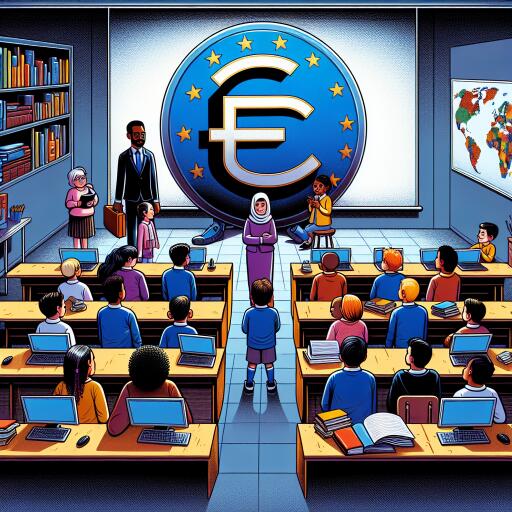Concerns Raised Over Privacy Infringements in Schoolchildren’s Data by Microsoft
In a recent development that sheds light on major tech companies’ influence on educational digital solutions, the European Center for Digital Rights, also recognized as noyb (None of Your Business), has lodged formal complaints regarding how Microsoft manages the privacy of schoolchildren. These complaints, rooted in the principles of the General Data Protection Regulation (GDPR), suggest that Microsoft’s data handling practices, particularly within its Microsoft 365 Education services, might infringe upon the privacy rights of students across educational institutions in the European Union.
The issue stems from how the tech conglomerate structures its agreements with educational bodies, allegedly placing an undue burden on these institutions to align with GDPR mandates without providing them the necessary control over the data collected. This scenario has sparked a debate about the responsibilities of software providers in safeguarding user data, especially when those users are unable to consent or fully grasp the extent of data collection and usage practices.
During the pandemic, the reliance on digital tools for education saw a significant uptick, with companies like Microsoft seizing the opportunity to integrate their services into daily academic activities. While this digital shift was largely celebrated for ensuring continuity in education, it also opened doors for potential privacy violations, making students, unknowingly, a captive audience to data harvesting practices.
The crux of noyb’s argument is the power imbalance between educational institutions and software giants. According to the organization, the latter’s dominant market position allows them to dictate terms that shift legal GDPR compliance burdens onto schools and local entities. These terms leave schools with a limited choice: accept the conditions laid out by providers like Microsoft or forego the use of essential educational resources.
“This approach by such vendors not only monopolizes educational technology but also absolves them of their GDPR responsibilities, unfairly transferring them onto schools,” commented Maartje de Graaf, a lawyer with noyb. “With schools unable to navigate the opaque details of data processing in these services, the burden of compliance is both unrealistic and unfair.”
The complaints by noyb highlight two main issues: a lack of transparency in Microsoft’s privacy practices and the inability of individuals to access personal data collected by Microsoft 365 Education. One case brought forward involves a parent’s futile attempt to access his daughter’s data under GDPR rights, only to be sent in circles between Microsoft and the educational institution. Another grievance mentions the unauthorized installation of tracking cookies by Microsoft 365 Education, purportedly for advertising purposes, without clear consent from the users or the schools involved.
“Our findings present a grim picture of privacy oversight, with Microsoft’s practices seemingly indifferent to the age of its users,” noted Felix Mikolasch, also a lawyer at noyb. “The implications of such data tracking and profiling on minors are profound, necessitating immediate attention from regulatory authorities.”
These revelations have prompted noyb to call upon the Austrian data protection authority to undertake a thorough investigation into Microsoft’s data collection and processing activities. The organization argues that not only is there a glaring violation of GDPR’s transparency requirements, but there is also a systemic neglect of the rights of access to personal data.
As regulatory bodies contemplate the next steps, this situation underscores a larger conversation about children’s digital rights and privacy in the age of online learning. It also highlights the crucial need for clearer regulations that ensure tech companies respect the privacy of all individuals, especially vulnerable groups like students, in their educational offerings. The outcome of this complaint could set a precedent for how digital rights and privacy protections are enforced in educational contexts moving forward.









